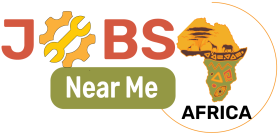Deadline: 06/17/2023 | Vacancy: Vacancy: Humanitarian Affairs Analyst
POSITION DESCRIPTION
The Humanitarian Affairs Analyst is intended to have complete awareness of the issues in Hirshabele State, operating from Beledweyne, and Somalia as a whole, under the general leadership of the Head of Field Coordination/HAO. He is expected to play a critical role in ensuring that OCHA Somalia’s major objectives are realized.
| Title | 11145 – Humanitarian Affairs Analyst |
| Experience | 2 years / 4 years |
| Number Of Vacancies | 2 |
| Academic Qualification | Master’s Degree / Bachelor’s Degree |
| Deadline: | 06/17/2023 11:39 AM |
POSITION BACKGROUD
The long-term humanitarian situation in Somalia is defined by recurring hostilities, climate shocks such as floods and drought, communicable disease outbreaks, and inadequate social protection. Two further shocks have led to a worsening of humanitarian conditions since the beginning of 2020: the desert locust infestation and the COVID-19 pandemic. In the first ten months of 2020, flooding displaced 840,000 people and ruined infrastructure, property, and 144,000 hectares of agricultural land.
In addition, Somalia saw the biggest desert locust invasion in 25 years, destroying tens of thousands of hectares of cropland and pasture, with potentially disastrous effects for agriculture and pastoral-based livelihoods. Armed conflict has had a significant influence on communities living in conflict zones. COVID-19 has a direct influence on Somalis’ lives, exacerbating patterns of vulnerability. This was in addition to continuous illness epidemics such as cholera, measles, and, most recently, vaccine-derived poliovirus. Lower Shabelle Region of South West State continues to bear the burden of individuals impacted by the aforementioned shocks.
Key Responsibilities and Accountabilities
Key functions are summarized as follows:
- Information Gathering and Sharing in Support of Humanitarian Analysis and Response.
- Information Sharing.
- Mechanisms for coordination and cooperation among stakeholders are being developed.
- Reporting and Monitoring
- Facilitation of knowledge creation and sharing
Competencies Essential:
Achieve Results: LEVEL 1: Plans and monitors own work, pays attention to details, and provides quality work on time.
Think Innovatively: LEVEL 1: Is open to creative ideas/known risks, is a pragmatic problem solver, and makes improvements.
Continuous Learning: LEVEL 1: Open-minded and inquisitive, shares knowledge, learns from mistakes, and solicits feedback
Adapt with Agility: LEVEL 1: Adapts to change, constructively handles ambiguity/uncertainty, and is adaptable
Act with Willpower: LEVEL 1: Demonstrates desire and motivation, the ability to deliver calmly in the face of adversity, and confidence.
Engage and Partner: LEVEL 1: Demonstrates compassion/understanding for others and develops positive relationships.
Enable Diversity and Inclusion: LEVEL 1: Recognize and respect differences, be aware of unconscious bias, and challenge discrimination
Education
Advanced university degree (Master’s degree or equivalent) in social science, emergency/disaster risk management, political science, law or international relations or related field s required, or
A first-level university degree (Bachelor’s degree) in combination with an additional two years of qualifying experience will be given due consideration in lieu of the advanced university degree
Experience, Knowledge, and Skills
- Minimum of 2 years (with Master’s Degree) or 4 years (with Bachelor’s Degree) of relevant experience at the national or international level that includes experience in complex emergency and inter-agency contexts, coping with relief and transitional issues
- Experience in the use of computers and office software programs (MS Word, Excel, etc) and advanced knowledge of web-based management systems such as ERP and advanced programmes for statistical analysis of data.
- Familiarity with UN policies, rules and procedures, particularly in relation to humanitarian response and coordination, and knowledge of institutional mandates, policies and guidelines pertinent to humanitarian assistance, especially the humanitarian reform agenda.
- Ability to investigate, analyze, evaluate and synthesize information.
- Ability to express plainly and concisely, ideas and concepts in written and oral form.
- Experience in the usage of computers and office software packages (MS Word, Excel, etc) and experience in managing web-based management systems.
Languages: Fluency in written and spoken English and the Local Language is required.
To Apply for this Vacancy: Vacancy: Humanitarian Affairs Analyst Click Here.

